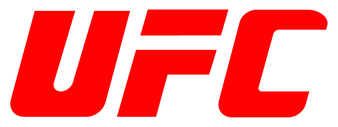In the high-stakes world of mixed martial arts (MMA), a select group of talented UFC fighters has tarnished their legacies and raised eyebrows by testing positive for steroids.
These performance-enhancing drugs (PEDs) have proven to be both alluring and dangerous, giving athletes an unfair advantage and jeopardizing their health in the long run.
This blog will dive deep into the lives of Alistair Overeem, Anderson Silva, Brock Lesnar, Cris Cyborg, Dan Henderson, Frank Mir and many other prominent UFC figures who’ve been caught with these banned substances in their systems.
Key Takeaways
- Several high – profile UFC fighters have been caught using steroids, including Alistair Overeem, Anderson Silva, Brock Lesnar, and Dan Henderson.
- The use of performance – enhancing drugs not only gives athletes an unfair advantage but also poses potential health risks in the long run.
- Strict anti – doping measures implemented by the UFC aim to maintain fairness and preserve the integrity of MMA as a legitimate sports league. However, it’s ultimately up to each individual fighter to uphold their responsibility towards clean sportsmanship.
Understanding Steroid Use In UFC
Steroid use in the UFC has become a heated topic of discussion among fans and fighters alike. Performance-enhancing drugs (PEDs), including anabolic steroids, human growth hormone, and erythropoietin, give athletes an unfair advantage over their opponents by improving strength, speed, endurance, or other physical attributes.
Despite regulatory efforts aimed at curtailing PED usage in MMA competitions such as the United States Anti-Doping Agency (USADA) testing procedures and penalties for violators, some high-profile fighters continue to risk their careers through steroid use.
A notable example is Anderson Silva who failed two drug tests before his fight against Nick Diaz at UFC 183 – one detecting multiple banned substances like drostanolone metabolites and Androstane prior to competition day.
Related: Best MMA Organizations (Promotions) In The World
Famous MMA Fighters Caught Using Steroids
Alistair Overeem, Anderson Silva, and Brock Lesnar are just a few of the famous MMA fighters who have been caught using steroids – read on to learn about more fighters and the negative impact of steroid use in UFC.
Alistair Overeem
Alistair Overeem is a prime example of UFC fighters who have been caught using steroids, damaging both their careers and the sport’s reputation. Known for his impressive striking ability and powerful physique, Overeem had been enjoying success in the UFC until he failed two drug tests required by the Nevada State Athletic Commission before his fight with Brock Lesnar.
Overeem tested positive for elevated levels of testosterone, resulting from performance-enhancing drugs (PEDs) like anabolic steroids. These substances can give athletes an unfair advantage over opponents through increased strength, speed, or endurance.
Anderson Silva
Anderson Silva, often regarded as one of the greatest mixed martial artists of all time, made headlines in 2015 when he tested positive for steroids.
Silva appealed the failed drug test, attributing it to a tainted sexual enhancement pill. However, regulators were not convinced by his explanation and levied a one-year suspension during which he was stripped of his titles thus tarnishing the legendary fighter’s legacy.
This case serves as an eye-opener for MMA enthusiasts who idolize fighters but are unaware of steroid abuse within the sport.
Dan Henderson
Dan Henderson is a former UFC fighter who has been caught using steroids. He tested positive for banned substances twice in his career, first after his Pride 32 fight with Wanderlei Silva in 2006 and again before his UFC 151 title fight against Jon Jones in 2012.
Henderson was suspended for six months following both failed tests and also had to pay fines. Prior to these incidents, he had always denied taking any performance-enhancing drugs but later admitted that he used them during his career.
Brock Lesnar
Brock Lesnar is a former UFC heavyweight champion who was also caught using steroids. Lesnar failed two drug tests for the banned substance Clomiphene after his fight against Mark Hunt in 2016.
Lesnar’s use of performance-enhancing drugs raised questions about whether he relied on them throughout his fighting career.
The incident with Lesnar highlights not only the negative impact of steroid use on individual fighters, but also on the reputation of MMA as a legitimate sport.
https://www.instagram.com/p/Crh0CZ9rlDi/?hl=en
Cris Cyborg
Cris Cyborg is one of the most dominant female fighters in MMA history, but her career has not been without controversy. In 2011, she tested positive for stanozolol, an anabolic steroid, after a Strikeforce event.
She was suspended for one year and fined $2,500.
Cyborg’s use of steroids has raised questions about how much performance-enhancing drugs have helped her career. Some argue that her size and strength are unnatural and point to her failed drug test as evidence of steroid use.
Frank Mir
Frank Mir is a former two-time UFC heavyweight champion who was suspended for using steroids. In 2016, he received a two-year suspension after testing positive for dehydroepiandrosterone (DHEA) metabolites, which are banned by the World Anti-Doping Agency (WADA).
Mir acknowledged his wrongdoing and admitted to using testosterone replacement therapy (TRT) before it was banned in 2014.
This incident had negative implications on Mir’s career, as well as tarnishing the reputation of UFC. It highlighted the dangers of taking steroids and how it could potentially harm fighters’ health, damage the sport’s integrity, and affect their careers.
Gleison Tibau
Gleison Tibau is a Brazilian UFC fighter who has had a successful career but also faced controversy due to doping allegations. He failed a drug test in 2015 and was suspended for two years by the United States Anti-Doping Agency (USADA).
Tibau tested positive for EPO, which is used to improve endurance and oxygen capacity. This led some fans to question his previous victories and raised concerns about fighters cheating with performance-enhancing drugs.
Despite this setback, Tibau returned to the Octagon in 2018 and continues to compete at the highest level of mixed martial arts.
Hector Lombard
Hector Lombard is a former Bellator Middleweight Champion and UFC fighter who has been caught using steroids. After his fight with Josh Burkman at UFC 182 in 2015, Lombard tested positive for the anabolic steroid desoxymethyltestosterone.
This wasn’t the first time Lombard had been caught using performance-enhancing drugs. In 2012 while still fighting under Bellator MMA, he also failed drug tests after defeating Alexander Shlemenko, which led to him being stripped of his title and suspended for a year.
Despite these setbacks due to doping, Lombard continued competing in MMA until retiring in 2019 with an overall record of 34-11-1 (2NC).
https://www.instagram.com/p/CqQqBonpCeY/
Josh Barnett
Josh Barnett is a former UFC heavyweight champion who was caught using steroids in 2002. He tested positive for two different anabolic steroids, leading to a six-month suspension from the sport.
Additionally, he was stripped of his UFC heavyweight title and released from the organization.
Barnett later returned to the UFC but faced more drug testing issues throughout his career. In 2009, he refused to take part in a random drug test issued by the California State Athletic Commission, resulting in another suspension and significant fines.
Despite these setbacks, Barnett remains a well-respected fighter with dozens of wins under his belt.
Wanderlei Silva
Wanderlei Silva is one of the most well-known UFC fighters caught using steroids. He failed a drug test after his fight with Chael Sonnen and was subsequently suspended for three years, effectively ending his career.
Silva’s steroid use tarnishes his legacy in MMA, as many fans view him as a cheating fighter who gained an unfair advantage over his opponents. It also highlights the negative impact that performance-enhancing drugs can have on the sport, both in terms of health risks and damage to its reputation.
The UFC Anti-Doping Program is taking measures to prevent such incidents from occurring again through testing procedures and penalties for violations.
Kimo Leopoldo
Kimo Leopoldo was an MMA fighter who competed in the UFC and other promotions during the early days of modern MMA. He is best known for his fights against Royce Gracie and Ken Shamrock.
Unfortunately, Kimo tested positive for steroids after his fight with Royce Gracie at UFC 3.
While some fans may argue that steroid use was more prevalent in the early days of MMA, it’s important to remember that even one instance of steroid use can have serious consequences for fighters.
In addition to damaging the reputation of individual fighters, taking performance enhancing drugs like steroids can also pose serious health risks and create an unfair advantage over opponents who choose not to take them.
Royce Gracie
Royce Gracie, one of the pioneers of modern MMA, failed a drug test back in 2007 after his fight with Kazushi Sakuraba. The test found traces of Nandrolone in his system, a banned anabolic steroid used to build muscle and enhance performance.
Gracie was suspended for six months and fined $2,500 by the California State Athletic Commission.
Gracie’s doping violation showed that even legends like him were not immune to temptation when it comes to using steroids. His positive test also shed light on why there is such a strong emphasis on testing fighters these days – to make sure that the sport remains fair, transparent and safe for all participants involved.
Sean Sherk
Sean Sherk is a former UFC lightweight champion who was caught using steroids in 2007. He tested positive for Nandrolone after his title defense against Hermes Franca at UFC 73 and was suspended for one year, as well as being stripped of his championship belt.
This incident damaged Sherk’s reputation and legacy as a fighter, with many fans labeling him a cheater. While he did return to competition after serving his suspension, the stain on his record remains.
Thiago Silva
Thiago Silva is a Brazilian mixed martial artist who was caught using steroids in 2013. He failed his drug test after a victory over Stanislav Nedkov, which resulted in him losing his fight purse and being suspended for six months.
It wasn’t the first time Silva had been accused of steroid use; he previously tested positive for marijuana and submitted a fake urine sample during another UFC event. The repeated violations led to him being released from the UFC in 2014, ending his career with the organization.
The negative impact of PEDs on fighters’ health and reputation cannot be understated, and it’s important to have strict anti-doping policies like those implemented by the UFC to keep MMA competitions clean and fair for all athletes involved.
Tim Sylvia
Tim Sylvia is a former UFC heavyweight champion who was caught using steroids in 2003. He tested positive for stanozolol, an anabolic steroid that is commonly used to improve muscle mass and strength.
The incident resulted in Sylvia receiving a six-month suspension from the Nevada State Athletic Commission.
Steroid use has been a problem throughout the sport of mixed martial arts, with several high-profile fighters being caught over the years. The negative impact of steroid use includes health risks, unfair advantages over opponents, and damage to the sport’s reputation.
TJ Dillashaw
TJ Dillashaw, a former UFC bantamweight champion, was suspended for two years after testing positive for recombinant human erythropoietin (EPO), a banned substance, in 2019.
Dillashaw admitted to using EPO leading up to his flyweight championship bout against Henry Cejudo and ultimately lost the fight.
The suspension of Dillashaw is another blow to the reputation of UFC as it shows that even top fighters are susceptible to cheating through performance-enhancing drugs. However, its strict Anti-Doping program demonstrates the organization’s commitment to ensuring a clean sport.
Vitor Belfort
Vitor Belfort is a well-known UFC fighter who was caught using steroids multiple times throughout his career. He failed drug tests in both 2006 and 2013, leading to several suspensions and sanctions from the UFC Anti-Doping Program.
His positive drug test results were highly controversial and damaging to his reputation as an MMA fighter. Despite this, Belfort continued competing in the sport for several years before officially retiring in 2018.
Ken Shamrock
Ken Shamrock, also known as “The World’s Most Dangerous Man,” is a former UFC fighter who has been caught using steroids. In 2009, Shamrock tested positive for the banned substance methenolone after his fight with Ross Clifton at War Gods: Valentine’s Eve Massacre.
This was not the first time that Ken Shamrock had run afoul of doping regulations in MMA; in 2000, he had failed a drug test before his fight against Tito Ortiz at UFC 40.
Yoel Romero
Yoel Romero is a Cuban middleweight fighter who has been competing in the UFC since 2013. He has had an impressive career with notable wins over Chris Weidman, Lyoto Machida, and Jacare Souza.
Romero failed a drug test in 2015 for using a banned substance called Ibutamoren and was suspended for six months. In 2016, he failed another test for taking anabolic steroids and was given a suspension that lasted for two years.
The use of performance-enhancing drugs like steroids can have serious consequences on fighters’ health as well as their careers. The UFC has implemented strict anti-doping policies to combat the issue and ensure that fights are fair and safe for all athletes involved.
Stephan Bonnar
Stephan Bonnar, known for his season one participation in The Ultimate Fighter reality show, tested positive twice for the anabolic steroid Drostanolone.
He was suspended from fighting by the Nevada State Athletic Commission (NSAC) for nine months after flunking out of two drug tests.
Bonnar’s legacy has been tarnished by these failed drug tests, and some fans believe that this casts a shadow on his accomplishments in UFC. The use of steroids is not only unfair to other fighters but also endangers the health and safety of everyone involved in mixed martial arts (MMA).
Fabricio Werdum
Fabricio Werdum, a former UFC heavyweight champion and Brazilian Jiu-Jitsu expert, tested positive for the anabolic steroid trenbolone in 2018. He was suspended for two years by USADA under the UFC Anti-Doping Program.
The failed drug test not only damaged his reputation but also ended up costing him over $600,000 in lost salary and bonuses. Before the suspension, Werdum had been scheduled to fight Alexey Oleynik at UFC Fight Night 136 in Moscow.
His suspension not only hurt his career but also highlighted how seriously anti-doping agencies take drug use in professional MMA fighting.
https://www.instagram.com/p/CrzWGDsgP9D/
Jon Jones
Jon Jones is one of the most talented and successful fighters in UFC history, but he has also been caught using steroids. In 2016, Jones was pulled from his scheduled fight against Daniel Cormier at UFC 200 after failing a drug test for two banned substances.
Jones served a suspension and attempted to make a comeback, but he failed another drug test before his planned fight with Cormier at UFC 214. This time, he tested positive for an anabolic steroid called Turinabol.
As a result of this latest violation, Jones faced up to a four-year suspension from the sport. The case ultimately led to the stripping of his title and suspension from competing.
Negative Impact Of Steroid Use In UFC
Steroid use in UFC has a negative impact on the sport, including health risks and safety concerns for fighters, an unfair advantage over opponents, and damage to the sport’s reputation.
Health Risks And Safety Concerns
The use of steroids in UFC poses serious health risks and safety concerns for fighters. These drugs can cause a range of negative side effects, including liver damage, high blood pressure, decreased fertility, increased risk of heart disease and cancer.
Additionally, steroid use can lead to aggressive behavior and mood swings. It’s important to note that these risks are not limited to the athletes themselves – opponents who face fighters using performance-enhancing drugs (PEDs) are also at risk of injury due to the increased strength and aggression associated with steroid use.
The UFC Anti-Doping Program seeks to protect the health and safety of all athletes by enforcing strict sanctions against those caught using PEDs.
Unfair Advantage Over Opponents
Using steroids in UFC can give fighters an unfair advantage over their opponents. Steroids can increase muscle mass, strength, and endurance, allowing those who use them to perform at a higher level than their natural abilities would allow.
For example, Brock Lesnar was caught using steroids after his fight against Mark Hunt in 2016. Lesnar won the fight but was later stripped of his victory due to the failed drug test result.
In addition to gaining an unfair advantage over competitors, steroid use also puts fighters’ health at risk. The negative side effects associated with these drugs range from acne and mood swings to more serious issues like heart attacks and liver damage.
Damage To The Sport’s Reputation
The use of steroids in UFC has had a detrimental impact on the sport’s reputation. Fans have become disillusioned with MMA because they no longer believe that fighters are competing on an even playing field.
Moreover, steroid use also hurts the public image of MMA by creating perceptions of cheating and dishonesty among athletes. These negative headlines can cause sponsors to withdraw their support, which may lead to fewer sponsorship opportunities for fighters, as well as lower paydays.
UFC’s Response To Steroid Use
The UFC has implemented strict anti-doping policies and measures, such as partnering with the United States Anti-Doping Agency (USADA), conducting thorough testing procedures, and imposing penalties and sanctions on fighters who test positive for banned substances.
Anti-Doping Policies And Measures
The UFC has taken measures to combat steroid use in its fighters. Here are some of the anti-doping policies and measures in place:
- The United States Anti-Doping Agency (USADA) administers the UFC’s Anti-Doping Program.
- Fighters must provide USADA with their whereabouts at all times for out-of-competition testing.
- Fighters are tested frequently throughout the year, including before and after fights.
- If a fighter tests positive for performance – enhancing drugs (PEDs), they face potential sanctions, such as suspension, heavy fines, or even termination of their contract.
- The length of suspension depends on the type and amount of PED detected, ranging from 10 months to four years.
- The UFC also requires new fighters to undergo drug testing before competing.
- Fighters who violate the anti – doping policy must attend an educational program about PEDs and may be required to perform community, charity or other public service work.
- The consequences of violating these rules can include legal repercussions which include criminal charges.
By implementing these policies and measures, the UFC aims to maintain a level playing field for its fighters while also protecting their health and safety. Any form of cheating like using steroids can pose serious health risks for MMA fighters like heart attack. It is essential that the sport maintains its integrity by enforcing strict rules on banned substances.
United States Anti-Doping Agency (USADA)
The United States Anti-Doping Agency (USADA) is the organization responsible for managing the UFC’s anti-doping program. They are tasked with enforcing strict drug testing policies to ensure a fair and level playing field for all fighters in the sport.
Through their rigorous testing procedures, USADA has caught several high-profile MMA fighters who have been found guilty of using performance-enhancing drugs (PEDs). Fighters who test positive can face lengthy suspensions, hefty fines, and other legal consequences.
Testing Procedures And Penalties
The UFC has implemented strict testing procedures and penalties for fighters caught using performance-enhancing drugs. Here are some of the key points:
- Fighters are subject to random year – round testing, in addition to tests before and after fights.
- The United States Anti – Doping Agency (USADA) handles testing for the UFC and uses a variety of methods to detect banned substances, including blood and urine samples.
- Fighters who test positive for steroids or other PEDs face significant consequences, including suspensions ranging from 10 months to 4 years depending on whether it’s a first-time offense or repeat.
- Additionally, fighters may face fines and have their win bonus withheld. They may also be required to participate in an approved rehabilitation program before being allowed to return to competition.
- Some substances that are prohibited by USADA include anabolic steroids, growth hormone – releasing peptides, and erythropoietin (EPO).
- Fighters must disclose all medications they are taking, including over-the-counter supplements, so that USADA can determine if any of them contain banned substances.
- When a fighter tests positive for a banned substance, the result is immediately reported to the relevant athletic commission and opponent. The fighter then enters into a legal process where he/she can dispute the positive test result.
It is important for MMA enthusiasts to understand these testing procedures and the severity of penalties associated with steroid use in UFC. The UFC is committed to creating a level playing field for all fighters and ensuring that only natural talent determines victory in the octagon.
Impact On Fighter Contracts
Steroid use can have a significant impact on a fighter’s contract in the UFC. When an athlete is caught using performance-enhancing drugs, they may face suspension and other penalties.
These consequences can jeopardize their career and future earnings potential.
The UFC Anti-Doping Program has strict guidelines in place to deter steroid use and punish those who violate the rules. Fighters who test positive for banned substances like steroids may face fines, suspensions ranging from 10 months to 4 years, and even termination of their contract with the UFC.
The severity of the punishment depends on various factors such as whether it was an intentional or unintentional violation and if there were any prior violations by the same athlete.
Overall, steroid use goes against what many fans love about combat sports – fair competition based on natural talent rather than artificial enhancements through doping practices.
The Science of Steroids
Steroids are a class of organic compounds that mimic the effects of testosterone and are used to enhance performance.
Types Of Steroids
Steroids can be broadly classified into two categories: anabolic steroids and corticosteroids. Anabolic steroids are synthetic substances that mimic the effects of testosterone and are used to build muscle mass and increase strength. Corticosteroids, on the other hand, are often used to treat inflammation or autoimmune conditions.
Here are some examples of anabolic steroids that MMA fighters have been caught using:
- Methenolone: Used for building lean muscle mass, improving endurance, and enhancing performance
- Dehydroepiandrosterone (DHEA): A hormone naturally produced by the body that is believed to boost testosterone levels
- Stanozolol: Used for cutting weight while maintaining muscle mass
It is important to note that the use of any type of steroid in MMA is prohibited and can result in serious consequences for fighters who test positive during drug screenings. The UFC Anti-Doping Program has strict regulations in place to prevent steroid abuse in the sport.
Health Risks And Side Effects
The use of steroids in UFC comes with significant health risks and dangerous side effects. Steroids can lead to liver damage, high blood pressure, heart disease, stroke, infertility in men and women, and hormonal imbalances.
Long-term steroid use can also cause mood swings, irritability, aggression, and depression.
Steroid abuse can have devastating consequences for fighters over time. For example, former UFC fighter Chris Leben experienced severe medical problems after years of steroid use that included a failing liver and testicular atrophy.
The Importance of A Clean Sport
Having a clean sport is crucial to honor the integrity of mixed martial arts, protect the health of fighters and preserve the positive impact of the sport.
Honoring The Integrity Of The Sport
When it comes to mixed martial arts and combat sports, one of the most crucial aspects is maintaining the integrity of the sport. Steroid use can severely impact that integrity and detract from the physical abilities and natural talents of fighters.
The UFC has taken a stance against steroid abuse by implementing strict anti-doping policies and procedures, including random drug testing throughout a fighter’s career.
Fighters caught using steroids not only compromise their own careers but also damage the reputation and credibility of the entire sport. UFC fans expect fair play and want to see fighters compete based solely on skill, technique, training, dedication, discipline, hard work- nothing more than natural ability honed through rigorous training regimens.
Protecting The Health Of Fighters
As fans of MMA, we must recognize that protecting the health and well-being of fighters should be a top priority in the sport. The use of steroids has been linked to serious long-term health problems including liver damage, heart disease, and cancer.
Furthermore, allowing some fighters to gain an unfair advantage through performance-enhancing drugs undermines the integrity of the sport and puts others at risk.
The UFC Anti-Doping Program aims to create a level playing field where success is achieved through hard work and natural talent rather than cheating with banned substances.
Preserving The Positive Impact Of The Sport
Preserving the positive impact of the sport is crucial in ensuring that MMA continues to be a respected and widely celebrated sport. Steroid use in UFC not only violates ethical principles but also undermines the reputation of both individual fighters and the sport as a whole.
The UFC Anti-Doping program has made significant strides towards eliminating steroid use among its fighters by implementing strict drug tests and penalties for those who test positive.
It is vital for MMA enthusiasts to support efforts towards preserving clean competition within the sport.
Read also:
- Most Jacked UFC Fighters
- Deadliest Martial Arts In The World
- UFC Illegal Moves
- What is the UFC Scoring System
- Knockout and Technical Knockout
FAQs
1. Which UFC Fighters have been caught using steroids?
There have been several high-profile UFC fighters who have tested positive for banned substances, including Jon Jones, Anderson Silva, and Brock Lesnar.
2. What are the consequences for a fighter caught using steroids in the UFC?
The consequences can vary depending on the severity of the infraction and whether or not it is a first-time offense. Penalties may include suspension from competition, fines, loss of rankings or titles, and even lifetime bans from the sport.
3. How does drug testing work in the UFC?
UFC fighters are subject to rigorous drug testing throughout their careers. Testing methods often include urine samples as well as blood tests to detect performance-enhancing drugs that may be undetectable through standard urine testing.
4. What impact do steroid scandals have on the reputation of MMA?
Steroid scandals can certainly harm both individual fighters’ reputations as well as casting doubt over MMA’s credibility as a legitimate athletic pursuit at times but it also raises awareness regarding anti-doping measures taken by major organizations like USADA which manages most drug-testing programs for professional mixed martial arts competitions around world when detected offenders are penalized accordingly under strict regulations set forth with input from stake holders such athletes themselves along side health & wellness specialists among others involved sports industry.
Conclusion
The use of steroids in UFC has had a significant impact on the sport. Several famous fighters have been caught using performance-enhancing drugs, resulting in negative consequences such as suspension and damage to their career.
The UFC has taken steps to address this issue through its anti-doping program and strict measures that penalize fighters who test positive for banned substances.
It is essential for MMA enthusiasts to honor the integrity of the sport by ensuring fair competition and protecting fighter safety from potential health risks associated with steroid use.










